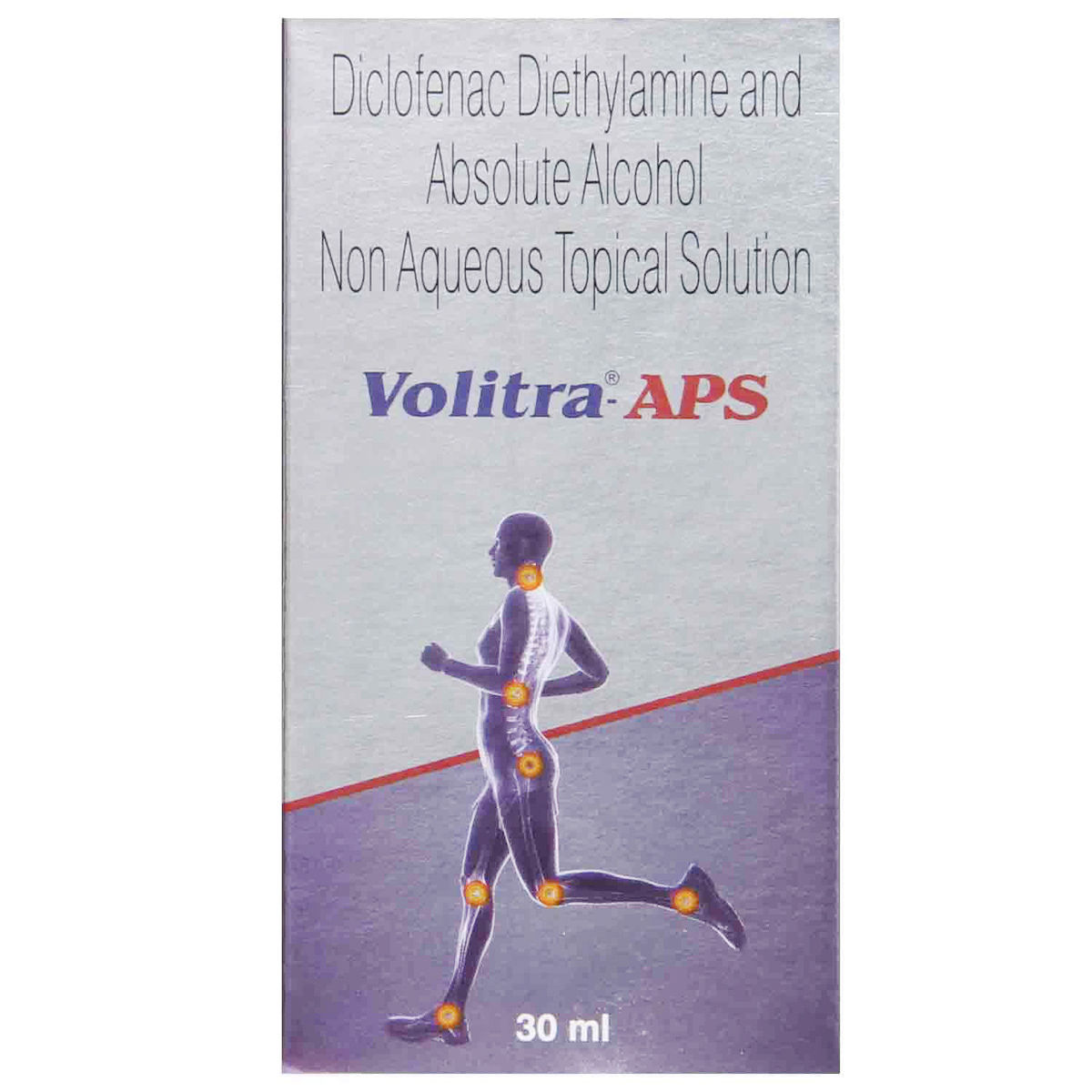Diclofenac+alcohol
About Diclofenac+alcohol
Diclofenac+alcohol is used to relieve pain and inflammation associated with musculoskeletal disorders, strain, sprain, arthritis, and low back pain. Musculoskeletal pain could occur due to arthritis, osteoporosis, fractures, dislocations, problems with the bone structure, or injury to the bones, joints, tendons, muscles, and ligaments.
Diclofenac+alcohol is a combination of two drugs, namely: Diclofenac and Alcohol. Diclofenac works by blocking the effect of chemical messengers that cause pain and inflammation at the injured or damaged site. Alcohol enhances the transdermal penetration of diclofenac. Together, Diclofenac+alcohol helps in providing relief from pain.
In some cases, Diclofenac+alcohol may cause common side-effects such as application site reactions like itching, irritation, redness, and burning sensation. Most of these side effects do not require medical attention and will resolve gradually over time. However, you are advised to talk to your doctor if you experience these side effects persistently.
Consult a doctor if you are pregnant or breastfeeding. Diclofenac+alcohol is not recommended for children below 14 years. Avoid or limit exposure to natural or artificial sunlight as Diclofenac+alcohol might make your skin sensitive to sunlight. Do not apply external heat or cover the treated skin with dressings after applying Diclofenac+alcohol.
Uses of Diclofenac+alcohol
Medicinal Benefits
Diclofenac+alcohol is a combination of two drugs, namely: Diclofenac and Alcohol. Diclofenac+alcohol is used to relieve pain and inflammation associated with musculoskeletal disorders, strain, sprain, arthritis, and low back pain. Diclofenac works by blocking the effect of a chemical messenger known as cyclo-oxygenase (COX) enzymes that make other chemical prostaglandins. By blocking the effect of COX enzymes, lesser prostaglandins are produced, which reduces mild to moderate pain and inflammation at the injured or damaged site. Alcohol enhances the transdermal penetration of diclofenac. Together, Diclofenac+alcohol helps in providing relief from pain and inflammation.
Directions for Use
Storage
Side Effects of Diclofenac+alcohol
- Itching
- Irritation
- Redness
- Burning sensation
- Nausea
- Vomiting
Patients Concern
Disease/Condition Glossary
Musculoskeletal pain: Musculoskeletal pain affects the bones, muscles, ligaments, tendons, and nerves. It can be acute or chronic, can be localized or widespread. The pain can be mild or severe enough to interfere with your daily routine. Musculoskeletal pain could occur due to arthritis, osteoporosis, fractures, dislocations, problems with the bone structure, or injury to the bones, joints, tendons, muscles, and ligaments. Musculoskeletal pain symptoms include stiffness, swelling, redness, weakness, muscle spasms or twitching, trouble moving the affected area, and soreness.
Osteoarthritis: It is a joint disease in which the two ends of the joints come together due to the breakdown of a protective covering called cartilage. Due to the absence of this protective covering, the joints rub against each other, leading to pain and stiffness. Symptoms include pain, stiffness, inflammation, and tenderness.
FAQs
Diclofenac+alcohol contains Diclofenac and Alcohol. Diclofenac works by blocking chemical messengers that cause pain and inflammation at the injured or damaged site. Alcohol enhances the transdermal penetration of diclofenac. Together, Diclofenac+alcohol helps in providing relief from pain.
Diclofenac+alcohol is used to reduce and relieve pain and inflammation associated with osteoarthritis. It is a joint disease in which the two ends of the joints come together due to the breakdown of a protective covering called cartilage.
Avoid concomitant use of Diclofenac+alcohol with other topical products such as cosmetics, sunscreens, lotions, moisturisers, insect repellent creams, and other gels.
Do not apply external heat or cover the treated skin with dressings after applying Diclofenac+alcohol. Avoid wearing clothes or gloves for at least 10 minutes after applying Diclofenac+alcohol.
Do not apply Diclofenac+alcohol on wounds, skin injuries, irritated skin, skin abrasions, rashes, and infections.
Avoid taking a bath or shower for at least 30 minutes after applying Diclofenac+alcohol.
Diclofenac might make your skin sensitive to sunlight, tanning beds, and ultraviolet light. Therefore, avoid or limit exposure to natural or artificial sunlight. Make sure to cover the treated skin whilst going outside.










